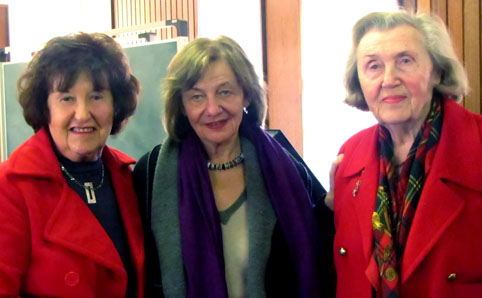|

|
|
Guests at the lecture from the left: Dr. Sheila Aronstam, a former UFS Council member; Dr. Eva Hoffman and Henya Bryer a survivor of the Holocaust
Photo: Amanda Tongha
|
Acclaimed Polish author and academic Dr Eva Hoffman visited the University of the Free State’s (UFS) Bloemfontein Campus on 16 Augustus 2010 to deliver a lunch-time lecture on the subject of contested memories.
Speaking about the after-effects of unjust violence on second-generation Holocaust survivors, Dr Hoffman drew some parallels between the history of Eastern Europe and that of South Africa, stating that with some categories of conflict and prejudice the context in this region of the world might not be too remote. Dr Hoffman, born to Jewish parents who survived the Holocaust, told the audience that in most instances the past was still alive in the present.
Talking about traumatic memories, Dr Hoffman revisited her family’s suffering during the Holocaust and stated that the second generation lives with the paradoxes of indirect knowledge. According to her there has to be acknowledgment of the injustice to put the conflict and tension inherited from a repressed history truly to rest. Referring to the work of the Truth and Reconciliation Commission (TRC), she said wrongs could not be forgiven until they were admitted.
Dr Hoffman, who is the author of books such as Lost in Translation: life in a new language and Stetl: the life and death of a small town and the world of Polish Jews, praised the university for being on the forefront of social issues in democratic South Africa.